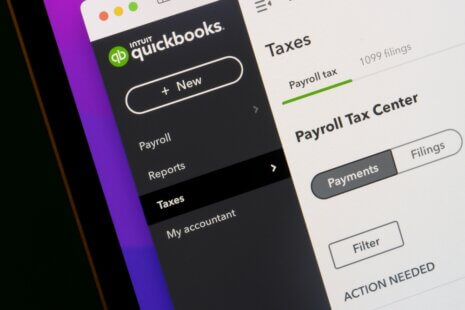Yes, it is possible for business owners to run payroll themselves, especially for small businesses with a limited number of employees. Running payroll involves several steps, and while it may seem complex initially, many tools and resources are available to simplify the process. Here is a general guide on how you can run payroll yourself:
- Obtain an Employer Identification Number (EIN):
- Before you can run payroll, you need to obtain an EIN from the IRS. This is a unique identifier for your business that is used for tax purposes.
- Determine Employee Classification:
- Classify your employees as either exempt or non-exempt and ensure that you understand the applicable labor laws, including minimum wage and overtime regulations.
- Collect Employee Information:
- Gather essential information from your employees, including their full names, addresses, Social Security numbers, tax withholding information (W-4 forms), and bank account details if you plan to offer direct deposit.
- Calculate Gross Pay:
- Calculate the gross pay for each employee based on their hourly wage or salary, taking into account any overtime or additional pay.
- Calculate Deductions:
- Deduct federal income tax, Social Security, and Medicare taxes from employees’ paychecks. You may also need to deduct state and local taxes, as well as any other deductions such as health insurance or retirement contributions.
- Calculate Net Pay:
- Subtract all deductions from the gross pay to calculate the net pay that employees will receive.
- Payroll Schedule:
- Determine your payroll schedule, whether it’s weekly, bi-weekly, semi-monthly, or monthly, and communicate this schedule to your employees.
- Process Payroll:
- Use payroll software, accounting software, or online payroll services to process payroll. These tools can automate calculations, deductions, and tax withholdings, making the process more efficient.
- Generate Paystubs:
- Provide employees with paystubs that detail their gross pay, deductions, and net pay. This is a legal requirement in many jurisdictions.
- Payroll Taxes:
- Remit payroll taxes to the appropriate tax authorities. This includes federal and state income tax withholdings, Social Security, and Medicare taxes.
- Record Keeping:
- Maintain accurate and organized payroll records, including employee earnings, tax withholdings, and other relevant information.
- Year-End Reporting:
- At the end of the year, provide employees with W-2 forms that summarize their annual earnings and tax withholdings. File the necessary tax forms with the IRS and other relevant authorities.
While it is possible to run payroll yourself, it’s crucial to stay informed about tax laws and regulations to ensure compliance. Consider using payroll software or seeking professional advice to simplify the process and reduce the risk of errors. If payroll responsibilities become too complex or time-consuming, some businesses opt to outsource payroll to third-party providers who specialize in payroll services.




